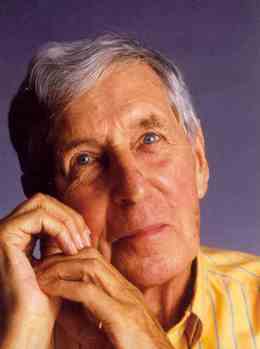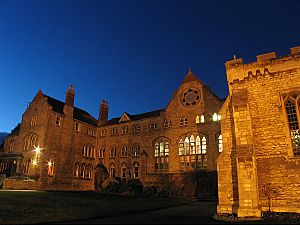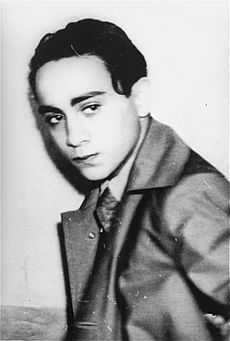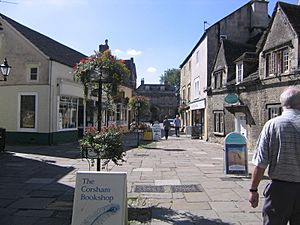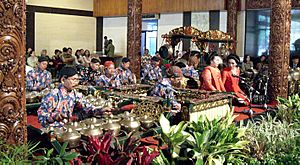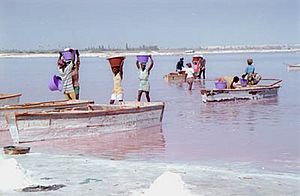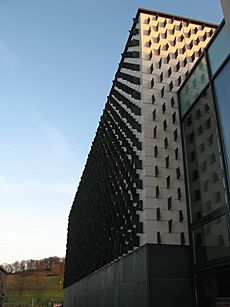Michael Tippett facts for kids
Sir Michael Kemp Tippett OM CH CBE (2 January 1905 – 8 January 1998) was an English composer who rose to prominence during and immediately after the Second World War. In his lifetime he was sometimes ranked with his contemporary Benjamin Britten as one of the leading British composers of the 20th century. Among his best-known works are the oratorio A Child of Our Time, the orchestral Fantasia Concertante on a Theme of Corelli, and the opera The Midsummer Marriage.
Tippett's talent developed slowly. He withdrew or destroyed his earliest compositions, and was 30 before any of his works were published. Until the mid-to-late 1950s his music was broadly lyrical in character, before changing to a more astringent and experimental style. New influences, including those of jazz and blues after his first visit to America in 1965, became increasingly evident in his compositions. While Tippett's stature with the public continued to grow, not all critics approved of these changes in style, some believing that the quality of his work suffered as a consequence. From around 1976 Tippett's late works began to reflect the works of his youth through a return to lyricism. Although he was much honoured in his lifetime, critical judgement on Tippett's legacy has been uneven, the greatest praise being generally reserved for his earlier works. His centenary in 2005 was a muted affair; apart from the few best-known works, his music has been performed infrequently in the 21st century.
Having briefly embraced communism in the 1930s, Tippett avoided identifying with any political party. A pacifist after 1940, he was imprisoned in 1943 for refusing to carry out war-related duties required by his military exemption. His initial difficulties in accepting his homosexuality led him in 1939 to Jungian psychoanalysis; the Jungian dichotomy of "shadow" and "light" remained a recurring factor in his music. He was a strong advocate of music education, and was active for much of his life as a radio broadcaster and writer on music.
Contents
Life
Family background
The Tippett family originated in Cornwall. Michael Tippett's grandfather, George Tippett, left the county in 1854 to make his fortune in London through property speculation and other business schemes. A flamboyant character, he had a strong tenor voice that was a popular feature at Christian revivalist meetings. In later life his business enterprises faltered, leading to debts, prosecution for fraud, and a term of imprisonment. His son Henry, born in 1858, was Michael's father. A lawyer by training, he was successful in business and was independently wealthy by the time of his marriage in April 1903. Unusually for his background and upbringing, Henry Tippett was a progressive liberal and a religious sceptic.
Henry Tippett's bride was Isabel Kemp, from a large upper-middle class family based in Kent. Among her mother's cousins was Charlotte Despard, a well-known campaigner for women's rights, suffragism, and Irish home rule. Despard was a powerful influence on the young Isabel, who was herself briefly imprisoned after participating in an illegal suffragette protest in Trafalgar Square. Although neither she nor Henry was musical, she had inherited an artistic talent from her mother, who had exhibited at the Royal Academy. After their marriage the couple settled outside London in Eastcote where two sons were born, the second, Michael, on 2 January 1905.
Childhood and schooling
Shortly after Michael's birth, the family moved to Wetherden in Suffolk. Michael's education began in 1909, with a nursery governess and various private tutors who followed a curriculum that included piano lessons—his first formal contact with music. There was a piano in the house, on which he "took to improvising crazily ... which I called 'composing', though I had only the vaguest notion of what that meant". In September 1914 Michael became a boarder at Brookfield Preparatory School in Swanage, Dorset. He spent four years there, at one point earning notoriety by writing an essay that challenged the existence of God. In 1918 he won a scholarship to Fettes College, a boarding school in Edinburgh, where he studied the piano, sang in the choir, and began to learn to play the pipe organ. The school was not a happy place; bullying of the younger pupils was commonplace. In March 1920 he transferred to Stamford School in Lincolnshire.
Around this time Henry Tippett decided to live in France, and the house in Wetherden was sold. The 15-year-old Michael and his brother Peter remained at school in England, travelling to France for their holidays. Michael found Stamford much more congenial than Fettes, and developed both academically and musically. He found an inspiring piano teacher in Frances Tinkler, who introduced him to the music of Bach, Beethoven, Schubert and Chopin. Sargent had maintained his connection with the school, and was present when Tippett and another boy played a C minor Concerto for Two Harpsichords by Bach on pianos with a local string orchestra. Tippett sang in the chorus when Sargent directed a local performance of Robert Planquette's operetta Les Cloches de Corneville. Despite his parents' wish that he follow an orthodox path by proceeding to Cambridge University, Tippett had firmly decided on a career as a composer, a prospect that alarmed them and was discouraged by his headmaster and by Sargent.
By mid-1922 Tippett had developed a rebellious streak. His overt atheism particularly troubled the school, and he was required to leave. He remained in Stamford in private lodgings, while continuing lessons with Tinkler and with the organist of St Mary's Church. He also began studying Charles Villiers Stanford's book Musical Composition which, he later wrote, "became the basis of all my compositional efforts for decades to come". In 1923 Henry Tippett was persuaded that some form of musical career, perhaps as a concert pianist, was possible, and agreed to support his son in a course of study at the Royal College of Music (RCM). After an interview with the college principal, Sir Hugh Allen, Tippett was accepted despite his lack of formal entry qualifications.
Royal College of Music
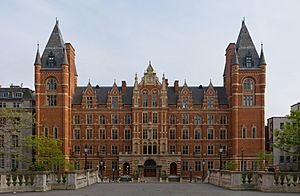
Tippett began at the RCM in the summer term of 1923, when he was 18 years old. At the time, his biographer Meirion Bowen records, "his aspirations were Olympian, though his knowledge rudimentary". Life in London widened his musical awareness, especially the Proms at the Queen's Hall, opera at Covent Garden (where he saw Dame Nellie Melba's farewell performance in La bohème) and the Diaghilev Ballet. He heard Chaliapin sing, and attended concerts conducted by, among others, Stravinsky and Ravel—the last-named "a tiny man who stood bolt upright and conducted with what to me looked like a pencil". Tippett overcame his initial ignorance of early music by attending Palestrina masses at Westminster Cathedral, following the music with the help of a borrowed score.
At the RCM, Tippett's first composition tutor was Charles Wood, who used the models of Bach, Mozart and Beethoven to instil a solid understanding of musical forms and syntax. When Wood died in 1926, Tippett chose to study with C.H. Kitson, whose pedantic approach and lack of sympathy with Tippett's compositional aims strained the relationship between teacher and pupil. Tippett studied conducting with Sargent and Adrian Boult, finding the latter a particularly empathetic mentor—he let Tippett stand with him on the rostrum during rehearsals and follow the music from the conductor's score. By this means Tippett became familiar with the music of composers then new to him, such as Delius and Debussy, and learned much about the sounds of orchestral instruments.
In 1924 Tippett became the conductor of an amateur choir in the Surrey village of Oxted. Although he saw this initially as a means of advancing his knowledge of English madrigals, his association with the choir lasted many years. Under his direction it combined with a local theatrical group, the Oxted and Limpsfield Players, to give performances of Vaughan Williams's opera The Shepherds of the Delectable Mountains and of Tippett's own adaptation of an 18th-century ballad opera, The Village Opera. He passed his Bachelor of Music (BMus) exams, at his second attempt, in December 1928. Rather than continuing to study for a doctorate, Tippett decided to leave the academic environment. The RCM years had brought him intense and lasting friendships with members of both sexes, in particular with Francesca Allinson and David Ayerst.
Early career
False start
On leaving the RCM, Tippett settled in Oxted to continue his work with the choir and theatrical group and to compose. To support himself he taught French at Hazelwood, a small preparatory school in Limpsfield, which provided him with a salary of £80 a year and a cottage. Also teaching at the school was Christopher Fry, the future poet and playwright who later collaborated with Tippett on several of the composer's early works.
In February 1930 Tippett provided the incidental music for a performance by his theatrical group of James Elroy Flecker's Don Juan, and in October he directed them in his own adaptation of Stanford's opera The Travelling Companion. His compositional output was such that on 5 April 1930 he gave a concert in Oxted consisting entirely of his own works—a Concerto in D for flutes, oboe, horns and strings; settings for tenor of poems by Charlotte Mew; Psalm in C for chorus and orchestra, with a text by Christopher Fry; piano variations on the song "Jockey to the Fair"; and a string quartet. Professional soloists and orchestral players were engaged, and the concert was conducted by David Moule-Evans, a friend from the RCM. Despite encouraging comments from The Times and the Daily Telegraph, Tippett was deeply dissatisfied with the works, and decided that he needed further tuition. He withdrew the music, and in September 1930 re-enrolled at the RCM for a special course of study in counterpoint with R. O. Morris, an expert on 16th-century music. This second RCM period, during which he learned to write fugues in the style of Bach and received additional tuition in orchestration from Gordon Jacob, was central to Tippett's eventual discovery of what he termed his "individual voice".
On 15 November 1931 Tippett conducted his Oxted choir in a performance of Handel's Messiah, using choral and orchestral forces close to Handel's original intentions. Such an approach was rare at that time, and the event attracted considerable interest.
Friendships, politics and music
In mid-1932 Tippett moved to a cottage in neighbouring Limpsfield, provided by friends as a haven in which he could concentrate on composition. His friendships with Ayerst and Allinson had opened up new cultural and political vistas. Through Ayerst he met W. H. Auden, who in due course introduced him to T. S. Eliot. Although no deep friendship developed with either poet, Tippett came to consider Eliot as his "spiritual father". Ayerst also introduced him to a young artist, Wilfred Franks. By this time Tippett was coming to terms with his homosexuality, while not always at ease with it. Franks provided him with what he described as "the deepest, most shattering experience of falling in love". This intense relationship ran alongside a political awakening. Tippett's natural sympathies had always been leftish, and became more consciously so from his inclusion in Allinson's circle of left-wing activists. As a result, he gave up his teaching position at Hazelwood to become the conductor of the South London Orchestra, a project financed by the London County Council and made up of unemployed musicians. Its first public concert was held on 5 March 1933 at Morley College, later to become Tippett's professional base.
In the summers of 1932 and 1934 Tippett took charge of musical activities at miners' work camps near Boosbeck in the north of England. Known as the Cleveland Work Camps, they were run by a munificent local landowner, Major Pennyman, to give unemployed miners a sense of purpose and independence. In 1932 Tippett arranged the staging of a shortened version of John Gay's The Beggar's Opera, with locals playing the main parts, and the following year he provided the music for a new folk opera, Robin Hood, with words by Ayerst, himself and Ruth Pennyman. Both works proved hugely popular with their audiences, and although most of the music has disappeared, some of Robin Hood was revived by Tippett for use in his Birthday Suite for Prince Charles of 1948. In October 1934 Tippett and the South London Orchestra performed at a centenary celebration of the Tolpuddle Martyrs, as part of a grand Pageant of Labour at the Crystal Palace.
Tippett was not formally a member of any political party or group until 1935, when he joined the British Communist Party at the urging of his cousin, Phyllis Kemp. This membership was brief; the influence of Trotsky's History of the Russian Revolution had led him to embrace Trotskyism, while the party maintained a strict Stalinist line. Tippett resigned after a few months when he saw no chance of converting his local party to his Trotskyist views. According to his obituarist J.J. Plant, Tippett then joined the Bolshevik-Leninist Group within the Labour Party, where he continued to advocate Trotskyism until at least 1938. Although Tippett's radical instincts always remained strong, he was aware that excessive political activism would distract him from his overriding objective of becoming recognised as a composer. A significant step towards professional recognition came in December 1935, when his String Quartet No. 1 was performed by the Brosa Quartet at the Mercury Theatre in Notting Hill, London. This work, which he dedicated to Franks, is the first in the recognised canon of Tippett's music. Throughout much of the 1930s Wilf Franks continued to be an important influence on Tippett both creatively and politically. Franks had a passion for the poetry of both William Blake and Wilfred Owen; Tippett claimed that Franks knew Owen's poetry 'almost word for word and draws it out for me, its meanings, its divine pity and so on...'.
Towards maturity
Personal crisis
Before the outbreak of the Second World War in September 1939, Tippett released two further works: the Piano Sonata No. 1, first performed by Phyllis Sellick at the Queen Mary Hall, London, on 11 November 1938, and the Concerto for Double String Orchestra, which was not performed until 1940. In a climate of increasing political and military tension, Tippett's compositional efforts were overwhelmed by an emotional crisis. When his relationship with Franks ended acrimoniously in August 1938 he was thrown into doubt and confusion about both his homosexuality and his worth as an artist. He was saved from despair when, at Ayerst's suggestion, he undertook a course of Jungian analysis with the psychotherapist John Layard. Through an extended course of therapy, Layard gave Tippett the means to analyse and interpret his dreams.
A Child of Our Time
While his therapy proceeded, Tippett was searching for a theme for a major work—an opera or an oratorio—that could reflect both the contemporary turmoil in the world and his own recent catharsis. Having briefly considered the theme of the Dublin Easter Rising of 1916, he based his work on a more immediate event: the murder in Paris of a German diplomat by a 17-year-old Jewish refugee, Herschel Grynszpan. This murder triggered Kristallnacht (Crystal Night), a coordinated attack on Jews and their property throughout Nazi Germany on 9–10 November 1938. Tippett hoped that Eliot would provide a libretto for the oratorio, and the poet showed interest. However, when Tippett presented him with a more detailed scenario, Eliot advised him to write his own text, suggesting that the poetic quality of the words might otherwise dominate the music. Tippett called the oratorio A Child of Our Time, taking the title from Ein Kind unserer Zeit, a contemporary protest novel by the Austro-Hungarian writer Ödön von Horváth. Within a three-part structure based on Handel's Messiah, Tippett took the novel step of using North American spirituals in place of the traditional chorales that punctuate oratorio texts. According to Kenneth Gloag's commentary, the spirituals provide "moments of focus and repose ... giving shape to both the musical and literary dimensions of the work". Tippett began composing the oratorio in September 1939, on the conclusion of his dream therapy and immediately after the outbreak of war.
Morley, war, imprisonment
With the South London Orchestra temporarily disbanded because of the war, Tippett returned to teaching at Hazelwood. In October 1940 he accepted the post of Director of Music at Morley College, just after its buildings were almost completely destroyed by a bomb. Tippett's challenge was to rebuild the musical life of the college, using temporary premises and whatever resources he could muster. He revived the Morley College Choir and orchestra, and arranged innovative concert programmes that typically mixed early music (Orlando Gibbons, Monteverdi, Dowland), with contemporary works by Stravinsky, Hindemith and Bartók.
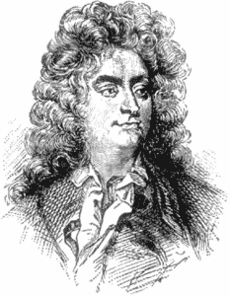
He continued the college's established association with the music of Purcell; a performance in November 1941 of Purcell's Ode to St Cecilia, with improvised instruments and rearrangements of voice parts, attracted considerable attention. The music staff at Morley was augmented by the recruitment of refugee musicians from Europe, including Walter Bergmann, Mátyás Seiber, and Walter Goehr who took charge of the college orchestra.
A Child of Our Time was finished in 1941 and put aside with no immediate prospects of performance. Tippett's Fantasia on a Theme of Handel for piano and orchestra was performed at the Wigmore Hall in March 1942, with Sellick again the soloist, and the same venue saw the première of the composer's String Quartet No. 2 a year later. The first recording of Tippett's music, the Piano Sonata No. 1 played by Sellick, was issued in August 1941. The recording was well received by the critics, Wilfrid Mellers predicting a leading role for the composer in the future of English music. In 1942, Schott Music began to publish Tippett's works, establishing an association that continued until the end of the composer's life.
The question of Tippett's liability for war service remained unresolved until mid-1943. In November 1940 he had formalised his pacifism by joining the Peace Pledge Union and applying for registration as a conscientious objector. His case was heard by a tribunal in February 1942, when he was assigned to non-combatant duties. Tippett rejected such work as an unacceptable compromise with his principles and in June 1943, after several further hearings and statements on his behalf from distinguished musical figures, he was sentenced to three months' imprisonment in HM Prison Wormwood Scrubs. He served two months, and although thereafter he was technically liable to further charges for failing to comply with the terms set by his tribunal, the authorities left him alone.
International acclaim
King Priam and after
In 1960 Tippett moved to a house in the Wiltshire village of Corsham, where he lived with his long-term partner Karl Hawker. By then Tippett had begun work on his second major opera, King Priam. He chose for his theme the tragedy of Priam, mythological king of the Trojans, as recorded in Homer's Iliad, and again he prepared his own libretto. As with The Midsummer Marriage, Tippett's preoccupation with the opera meant that his compositional output was limited for several years to a few minor works, including a Magnificat and Nunc Dimittis written in 1961 for the 450th anniversary of the foundation of St John's College, Cambridge. King Priam was premièred in Coventry by the Covent Garden Opera on 29 May 1962 as part of a festival celebrating the consecration of the new Coventry Cathedral. The production was by Sam Wanamaker and the lighting by Sean Kenny. John Pritchard was the conductor. The music for the new work displayed a marked stylistic departure from what Tippett had written hitherto, heralding what a later commentator, Iain Stannard, refers to as a "great divide" between the works before and after King Priam. Although some commentators questioned the wisdom of so radical a departure from his established voice, the opera was a considerable success with critics and the public. Lewis later called it "one of the most powerful operatic experiences in the modern theatre". This reception, combined with the fresh acclaim for The Midsummer Marriage following a well-received BBC broadcast in 1963, did much to rescue Tippett's reputation and establish him as a leading figure among British composers.
As earlier with The Midsummer Marriage, the compositions that followed King Priam retained the musical idiom of the opera, notably the Piano Sonata No. 2 (1962) and the Concerto for Orchestra (1963), the latter written for the Edinburgh Festival and dedicated to Britten for his 50th birthday. Tippett's main work in the mid-1960s was the cantata The Vision of Saint Augustine, commissioned by the BBC, which Bowen marks as a peak of Tippett's compositional career: "Not since The Midsummer Marriage had he unleashed such a torrent of musical invention". His status as a national figure was now being increasingly recognised. He had been appointed a Commander of the Order of the British Empire (CBE) in 1959; in 1961 he was made an honorary Fellow of the Royal College of Music (HonFRCM), and in 1964 he received from Cambridge University the first of many honorary doctorates. In 1966 he was awarded a knighthood.
Wider horizons
In 1965 Tippett made the first of several visits to the United States, to serve as composer in residence at the Aspen Music Festival in Colorado. Tippett's American experiences had a significant effect on the music he composed in the late 1960s and early 1970s, with jazz and blues elements particularly evident in his third opera, The Knot Garden (1966–69), and in the Symphony No. 3 (1970–72). At home in 1969, Tippett worked with the conductor Colin Davis to rescue the Bath International Music Festival from a financial crisis, and became the festival's artistic director for the following five seasons. In 1970, following the collapse of his relationship with Hawker, he left Corsham and moved to a secluded house on the Marlborough Downs. Among the works he wrote in this period were In Memoriam Magistri (1971), a chamber piece commissioned by Tempo magazine as a memorial to Stravinsky, who had died on 6 April 1971, and the Piano Sonata No. 3 (1973).
In February 1974 Tippett attended a "Michael Tippett Festival", arranged in his honour by Tufts University, near Boston, Massachusetts. He was also present at a performance of The Knot Garden at Northwestern University at Evanston, Illinois—the first Tippett opera to be performed in the US. Two years later he was again in the country, engaged on a lecture tour that included the Doty Lectures in Fine Art at the University of Texas. Between these American journeys, Tippett travelled to Lusaka for the first African performance of A Child of Our Time, at which the Zambian president, Kenneth Kaunda, was present.
In 1976 Tippett was awarded the Gold Medal of the Royal Philharmonic Society. The following few years saw journeys to Java and Bali—where he was much attracted by the sounds of gamelan ensembles—and to Australia, where he conducted a performance of his Fourth Symphony in Adelaide. In 1979, with funds available from the sale of some of his original manuscripts to the British Library, Tippett inaugurated the Michael Tippett Musical Foundation, which provided financial support to young musicians and music education initiatives.
Tippett maintained his pacifist beliefs, while becoming generally less public in expressing them, and from 1959 served as president of the Peace Pledge Union. In 1977 he made a rare political statement when, opening a PPU exhibition at St Martin-in-the-Fields, he attacked President Carter's plans to develop a neutron bomb.
Later life
In his seventies, Tippett continued to compose and travel, although now handicapped by health problems. His eyesight was deteriorating as a result of macular dystrophy, and he relied increasingly on his musical amanuensis and near namesake Michael Tillett, and on Meirion Bowen, who became Tippett's assistant and closest companion in the remaining years of the composer's life. The main works of the late 1970s were a new opera, The Ice Break, the Symphony No. 4, the String Quartet No. 4 and the Triple Concerto for violin, viola and cello. The Ice Break was a reflection of Tippett's American experiences. His libretto has been criticised for its awkward attempts at American street vernacular, and the opera has not found a place in the general repertory. Mellers finds that its fusion of "art music, rock ritual and performance art fail to gel". The Triple Concerto includes a finale inspired by the gamelan music that Tippett absorbed during his visit to Java.
In 1979 Tippett was made a Companion of Honour (CH). The main composition that occupied him in the early 1980s was his oratorio The Mask of Time, loosely based on Jacob Bronowski's 1973 TV series The Ascent of Man. In Tippett's words, this is an attempt to deal "with those fundamental matters that bear upon man, his relationship with Time, his place in the world as we know it and in the mysterious universe at large". The oratorio was commissioned by the Boston Symphony Orchestra for its centenary, and was one of several of Tippett's late compositions that were premièred in America.
In 1983 Tippett became president of the London College of Music and was appointed a Member of the Order of Merit (OM). By the time of his 80th birthday in 1985 he was blind in his right eye, and his output had slowed. Nevertheless, in his final active years he wrote his last opera, New Year. This futuristic fable involving flying saucers, time travel and urban violence was indifferently received on its première in Houston, Texas, on 17 October 1989. Donal Henahan in The New York Times wrote that "Unlike Wagner, [Tippett] does not provide music of enough quality to allow one to overlook textual absurdities and commonplaces." The opera was introduced to Britain in the Glyndebourne Festival of 1990.
In spite of his deteriorating health, Tippett toured Australia in 1989–90, and also visited Senegal. His last major works, written between 1988 and 1993, were: Byzantium, for soprano and orchestra; the String Quartet No. 5; and The Rose Lake, a "song without words for orchestra" inspired by a visit to Lake Retba in Senegal during his 1990 trip. He intended The Rose Lake to be his farewell, but in 1996 he broke his retirement to write "Caliban's Song" as a contribution to the Purcell tercentenary.
Death
In 1997 he moved from Wiltshire to London to be closer to his friends and caregivers; in November of that year he made his last overseas trip, to Stockholm for a festival of his music. After suffering a stroke he was taken home, where he died on 8 January 1998, six days after his 93rd birthday. He was cremated on 15 January, at Hanworth crematorium, after a secular service.
Reputation and legacy
In a joint study of Tippett and Britten published in 1982, Whittall designated the pair as "the two best British composers of that ... generation born between 1900 and the outbreak of the First World War, and among the best of all composers born in the first two decades of the twentieth century". After Britten's death in 1976, Tippett became widely regarded as the doyen of British music, but critical opinion of his later works was not always positive. After the first performance of the Triple Concerto in 1980, Driver wrote that "not since The Knot Garden has [he] produced anything worthy of his early masterpieces".
In 1982, in his comparative study of Britten and Tippett, Whittall asserted that "it would be difficult to claim that any of the works [Tippett] has begun in his seventies are the equal of earlier compositions". Although both Driver and Whittall later modified their opinions, such comments represented a general view among critics that Tippett's creative powers had begun to decline after the triumph of King Priam. This perception was strongly expressed by Derek Puffett, who argued that the decline followed Tippett's abandonment of myth—seen as the key to the success of The Midsummer Marriage and King Priam—and stemmed from his increasingly futile efforts to universalise his private agonies and express them musically. Despite his admiration for the early works, Puffett consigned Tippett "to the ranks of those noble but tragic composers who have lived beyond their time". The critic Norman Lebrecht, writing in 2005, dismissed almost all Tippett's output, labelling him "a composer to forget". With the forthcoming centenary celebrations in mind, Lebrecht wrote: "I cannot begin to assess the damage to British music that will ensue from the coming year's purblind promotion of a composer who failed so insistently to observe the rules of his craft".
Against these criticisms Kemp maintained that while the style had become less immediately accessible, Tippett's later works showed no loss of creative power. The critic Peter Wright, writing in 1999, challenged the "decline" theory with the view that the later compositions are "harder to come to terms with ... because of the more challenging nature of their musical language", a theme he developed in a detailed study of the Fifth String Quartet.
After Tippett's death the more popular pieces from his first period continued to be played, but there was little public enthusiasm for the later works. After the relatively muted 2005 centenary celebrations, performances and recordings tailed off. In October 2012 Hewett wrote in the Daily Telegraph of a "calamitous fall" in Tippett's reputation since his death. Geraint Lewis acknowledges that "no consensus yet exists in respect of the works composed from the 1960s onwards", while forecasting that Tippett will in due course be recognised as one of the most original and powerful musical voices of twentieth-century Britain".
Many of Tippett's articles and broadcast talks were issued in collections between 1959 and 1995. In 1991 he published an episodic autobiography, Those Twentieth Century Blues, notable for its frank discussions of personal issues and relationships. Collectively, Tippett's writings define his aesthetic standpoint, which Clarke summarises thus: "Tippett holds that art's role in post-Enlightenment culture is to offer a corrective to society's spiritually injurious domination by mass technology. Art, he suggests, can articulate areas of human experience, unapproachable through scientific rationality, by presenting 'images' of the inner world of the psyche."
Although Tippett did not found a compositional school, composers who have acknowledged his influence include David Matthews and William Mathias. More generally, his musical and educational influence continues through the Michael Tippett Foundation. He is also commemorated in the Michael Tippett Centre, a concert venue within the Newton Park campus of Bath Spa University. In Lambeth, home of Morley College, is Heron Academy (previously named The Michael Tippett School), an educational facility for young people aged 11–19 with complex learning disabilities. Within the school's campus is the Tippett Music Centre, which offers music education for children of all ages and levels of ability.
Writings
Three collections of Tippett's articles and broadcast talks have been published:
- Moving into Aquarius (1959). London, Routledge and Kegan Paul. OCLC 3351563
- Music of the Angels: essays and sketchbooks of Michael Tippett (1980). London, Eulenburg Books. ISBN: 0-903873-60-5
- Tippett on Music (1995). Oxford, Clarendon Press. ISBN: 0-19-816541-2
See also
 In Spanish: Michael Tippett para niños
In Spanish: Michael Tippett para niños


